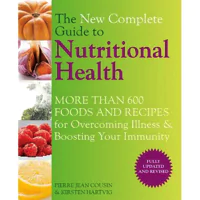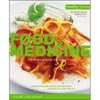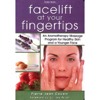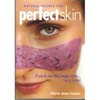
Hay fever is one of the most common allergies affecting around 10-12 millions people in the UK. The name is somewhat misleading; it is not caused by hay, but by pollens from wind-pollinated grasses, trees, and weeds, and spores from fungi. At worst, it makes spring and summer months a misery.
Recent research suggest that between 10 and 15 per cent of the population suffers from hay fever, rising to around 25 per cent in the 10-25 year old age group. In the UK, around 95 per cent of hay fever sufferers are allergic to grass pollen although a significant numbers of sufferers are allergic to both tree and grass pollen. It seems that the number of people affected is gradually increasing, so is the intensity of their symptoms.
Recent research suggest that between 10 and 15 per cent of the population suffers from hay fever, rising to around 25 per cent in the 10-25 year old age group. In the UK, around 95 per cent of hay fever sufferers are allergic to grass pollen although a significant numbers of sufferers are allergic to both tree and grass pollen. It seems that the number of people affected is gradually increasing, so is the intensity of their symptoms.
The start of the grass pollen season may vary from one year to the other, but feature rapid rises in pollen counts often around the end of May over much of the country.
There is a lag time between the start of the pollen seasons in the South and North of about two to three weeks. Grass growth is very good with high production of pollen when the weathers warm with occasional rain, the grass pollen season is usually severe if normal british weather conditions during the month of June.
Hay fever is caused by an allergic reaction to proteins contained in the pollen grains released by trees, grasses and weeds, as well as mould spores. When these proteins contact the eyes and nose lining of a sensitive person, the classic hay fever symptoms (itchy watery eyes, blocked or stuffy nose and sneezing) appear rapidly.
The best way to reduce symptoms of hay fever is to avoid direct contact with pollens or spores as much as possible. This means staying away from long grass and other obvious sources of pollen, keeping the windows shut in the home and car, and wearing sunglasses However, even in the middle of London it is impossible to avoid pollens altogether, so sufferers usually still need some kind of treatment.
Conventional treatment for hay fever: is mainly symptomatic: Antihistamines tablets ease most of the symptoms, but are not so good at relieving nasal congestion, and may cause fatigue, even drowsiness.
Decongestant nose sprays have an immediate effect to clear a blocked nose, however, if you use a decongestant nose spray for more than 5-7 days, a 'rebound' more severe congestion of your nose may develop. Steroids spray do not have rebound effect, but are available only on prescription; they are good for nose symptoms, not so good for itchy eyes.
There is a lag time between the start of the pollen seasons in the South and North of about two to three weeks. Grass growth is very good with high production of pollen when the weathers warm with occasional rain, the grass pollen season is usually severe if normal british weather conditions during the month of June.
Hay fever is caused by an allergic reaction to proteins contained in the pollen grains released by trees, grasses and weeds, as well as mould spores. When these proteins contact the eyes and nose lining of a sensitive person, the classic hay fever symptoms (itchy watery eyes, blocked or stuffy nose and sneezing) appear rapidly.
The best way to reduce symptoms of hay fever is to avoid direct contact with pollens or spores as much as possible. This means staying away from long grass and other obvious sources of pollen, keeping the windows shut in the home and car, and wearing sunglasses However, even in the middle of London it is impossible to avoid pollens altogether, so sufferers usually still need some kind of treatment.
Conventional treatment for hay fever: is mainly symptomatic: Antihistamines tablets ease most of the symptoms, but are not so good at relieving nasal congestion, and may cause fatigue, even drowsiness.
Decongestant nose sprays have an immediate effect to clear a blocked nose, however, if you use a decongestant nose spray for more than 5-7 days, a 'rebound' more severe congestion of your nose may develop. Steroids spray do not have rebound effect, but are available only on prescription; they are good for nose symptoms, not so good for itchy eyes.

Alternative medicine is often very effective in treating hay fever and other allergies:
Acupuncture: beside rapid symptom relief, acupuncture can reduce severe inflammation of the ear nose and throat, and bring long term improvement.
Acupuncture is very effective, and you feel better almost immediatly
Homeopathic remedies for allergic rhinitis include: Allium cepa, Euphrasia, Pusatilla, Nux vomica, they often work better in combination, I can create a homeopathic formula according to your specific symptoms.
Homeopathy as no side effect and can be given to children and pregnant women
Herbal supplements for allergic rhinitis include chamomile, Echinacea, Goldenseal, cleavers, elderberry , and eyebright .
Acupuncture: beside rapid symptom relief, acupuncture can reduce severe inflammation of the ear nose and throat, and bring long term improvement.
Acupuncture is very effective, and you feel better almost immediatly
Homeopathic remedies for allergic rhinitis include: Allium cepa, Euphrasia, Pusatilla, Nux vomica, they often work better in combination, I can create a homeopathic formula according to your specific symptoms.
Homeopathy as no side effect and can be given to children and pregnant women
Herbal supplements for allergic rhinitis include chamomile, Echinacea, Goldenseal, cleavers, elderberry , and eyebright .
Acupuncture Wimbledon | acupuncture Earlsfields





